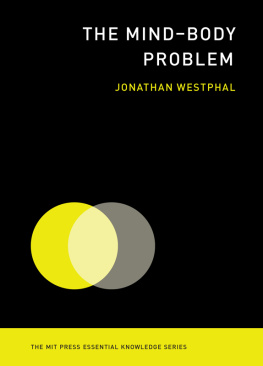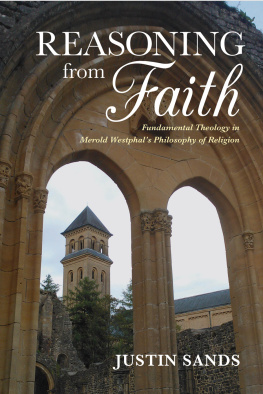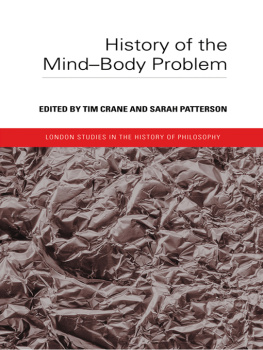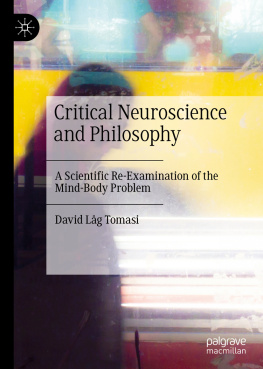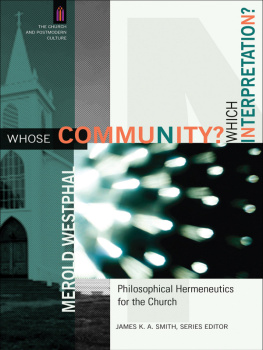Westphal - The Mind-body problem
Here you can read online Westphal - The Mind-body problem full text of the book (entire story) in english for free. Download pdf and epub, get meaning, cover and reviews about this ebook. City: Cambridge;Massachusetts, year: 2016, publisher: The MIT Press, genre: Religion. Description of the work, (preface) as well as reviews are available. Best literature library LitArk.com created for fans of good reading and offers a wide selection of genres:
Romance novel
Science fiction
Adventure
Detective
Science
History
Home and family
Prose
Art
Politics
Computer
Non-fiction
Religion
Business
Children
Humor
Choose a favorite category and find really read worthwhile books. Enjoy immersion in the world of imagination, feel the emotions of the characters or learn something new for yourself, make an fascinating discovery.
The Mind-body problem: summary, description and annotation
We offer to read an annotation, description, summary or preface (depends on what the author of the book "The Mind-body problem" wrote himself). If you haven't found the necessary information about the book — write in the comments, we will try to find it.
The Mind-body problem — read online for free the complete book (whole text) full work
Below is the text of the book, divided by pages. System saving the place of the last page read, allows you to conveniently read the book "The Mind-body problem" online for free, without having to search again every time where you left off. Put a bookmark, and you can go to the page where you finished reading at any time.
Font size:
Interval:
Bookmark:
The MIT Press Essential Knowledge Series
Auctions, Timothy P. Hubbard and Harry J. Paarsch
Understanding Beliefs, Nils J. Nilsson
Cloud Computing, Nayan Ruparelia
Computing: A Concise History, Paul E. Ceruzzi
The Conscious Mind, Zoltan L. Torey
Crowdsourcing, Daren C. Brabham
Free Will, Mark Balaguer
Information and the Modern Corporation, James W. Cortada
Intellectual Property Strategy, John Palfrey
The Internet of Things, Samuel Greengard
Memes in Digital Culture, Limor Shifman
Metadata, Jeffrey Pomerantz
The MindBody Problem, Jonathan Westphal
MOOCs, Jonathan Haber
Neuroplasticity, Moheb Costandi
Open Access, Peter Suber
Paradox, Margaret Cuonzo
Self-Tracking, Gina Neff and Dawn Nafus
Robots, John Jordan
Waves, Frederic Raichlen
Jonathan Westphal
The MIT Press
Cambridge, Massachusetts
London, England
2016 Massachusetts Institute of Technology
All rights reserved. No part of this book may be reproduced in any form by any electronic or mechanical means (including photocopying, recording, or information storage and retrieval) without permission in writing from the publisher.
MIT Press books may be purchased at special quantity discounts for business or sales promotional use. For information, please email or write to Special Sales Department, The MIT Press, 1 Rogers Street, Cambridge, MA 02142.
This book was set in Chaparral and DIN by Toppan Best-set Premedia Limited. Printed and bound in the United States of America.
Library of Congress Cataloging-in-Publication Data
Names: Westphal, Jonathan, 1951- author.
Title: The mind-body problem / Jonathan Westphal.
Description: Cambridge, MA : MIT Press, 2016. | Series: The MIT Press essential knowledge series | Includes bibliographical references and index.
Identifiers: LCCN 2016014329 | ISBN 9780262529563 (pbk. : alk. paper)
eISBN 9780262335669
Subjects: LCSH: Mind and body.
Classification: LCC BF161 .W455 2016 | DDC 128/.2dc23 LC record available at https://lccn.loc.gov/2016014329
ePub Version 1.0
The MIT Press Essential Knowledge series offers accessible, concise, beautifully produced pocket-size books on topics of current interest. Written by leading thinkers, the books in this series deliver expert overviews of subjects that range from the cultural and the historical to the scientific and the technical.
In todays era of instant information gratification, we have ready access to opinions, rationalizations, and superficial descriptions. Much harder to come by is the foundational knowledge that informs a principled understanding of the world. Essential Knowledge books fill that need. Synthesizing specialized subject matter for nonspecialists and engaging critical topics through fundamentals, each of these compact volumes offers readers a point of access to complex ideas.
Bruce Tidor
Professor of Biological Engineering and Computer Science
Massachusetts Institute of Technology
The mindbody problem is a paradox. A paradox is a group of propositions for each of which we have apparently sound arguments, yet the propositions taken together are inconsistent. We cannot affirm all the propositions in the group, yet we have good reason to believe that they are all true.
My approach is a narrower one than is usually taken to the mindbody problem, but I believe that this approach can help us to think clearly about what is going on with the particular solutions that have been given to the problem in the past. It will help us not to get lost in the metaphysics of things other than the mind and the body. The mindbody problem, in its full generality, which I introduce in chapter 1, is about the mind and the body, not about the self, or consciousness, or the soul, or anything other than the mind and the body. In chapter 5, however, I do consider some important scientific theories of consciousness as examples of scientific treatments of this part of the mind and the mindbody problem. Consciousness, the study of which has recently become important in the cognitive sciences, can reasonably be regarded as a part of the mind, though it is not the whole of it, nor is it as Descartes believed the essence of mind.
Among other questions, the mindbody problem can be taken to raise the issue of the physicality of the mind. It is certainly hard to see how it can be true that the mind, and with it consciousness, is just physical matter. We cannot watch or even imagine the neurons firing and emitting little bursts of mentality or consciousness, like diaphanous fairies flitting around the brain. The brain is obstinately physical, indeed material, weighing in at a hefty three pounds or so, but it does not make sense even to ask how much the mind weighs. One can say that the human brain is approximately 2 percent of the weight of the human being. And one can say that it contains one hundred million neurons, not to mention glial cells. But these things are not true of the human mind. We can say that the brain measures roughly five by six by four inches. Nothing remotely like that can be said of the mind. Of course, there are more sophisticated versions of materialism (the thesis that everything that exists is something material) or physicalism (the thesis that everything that exists is something physical), which I discuss in chapter 3, but the same difficulty remains buried in all of them.
Following David Chalmers, philosophers and others have wanted to distinguish the hard problem from the easy problem of consciousness, or rather the easy problemsthey are many, according to Chalmersand quite a lot has been written about this recently. By the easy problems, Chalmers means the problems of describing the physical processes by which we come to have, for example, the consciousness of whiteness, assuming that we can make sense of this phrase. Clearly there are many problems of this sort. We have to understand the mechanisms of the eyes, of the ears, of touch, of the nose, and so on. The hard problem is to understand how our experience of whiteness, and with it our consciousness of whiteness, could arise from the purely physical systems operating in the visual cortex. The idea is that we can understand experience by the physical processes that go on when we perceive, but that there are properties of the experiences that cannot be understood in this way. These are the qualia, and for Chalmers they are not physical.
Fair enough, but this new twentieth-century hard problem is simply a souped-up version of an old problem which, as we shall see in chapter 1, appeared with Descartes and his critics in 1641. The hard problem is hard. Why? Because it is the mindbody problem, and that is a hard problem. Chalmerss hard problem of consciousness is just the mindbody problem with a new name, complete with a very sharp distinction between the more easily understood physical processes, and consciousness or qualia, or mind. For Descartes, the principal attribute of the mind is consciousness, and so, as his critics pointed out, there is a problem about the relation of the mind to the body. This is all down to the difficulty of asserting that the mind is physical: the mind does not seem to fit into the world of physics and physiology at all. Or so claims dualism. I consider different forms of dualism in chapter 2.
In the mid-seventeenth century, the mindbody problem became a central problemthe world-knot, as it is often said that Schopenhauer called ithe didnt. What Schopenhauer would perhaps have meant had he used that phrase for the mindbody problem is that the problem signifies that our day-to-day concepts of the mental and the physical and the mind and the body are somehow tangled up in such a way that our entire conception of the world, including the physical world, is called into question by the mindbody problem. The metaphysical problem itself has only gained in significance since philosophers first became aware of it, and at the end of the twentieth century and the beginning of the twenty-first, for better or for worse, it is still alive and well.
Next pageFont size:
Interval:
Bookmark:
Similar books «The Mind-body problem»
Look at similar books to The Mind-body problem. We have selected literature similar in name and meaning in the hope of providing readers with more options to find new, interesting, not yet read works.
Discussion, reviews of the book The Mind-body problem and just readers' own opinions. Leave your comments, write what you think about the work, its meaning or the main characters. Specify what exactly you liked and what you didn't like, and why you think so.

